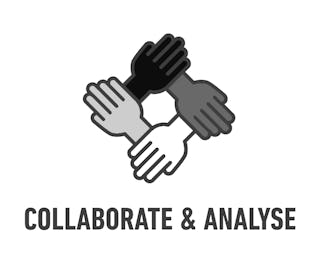Collaboration
Oct 15, 2018

I came across two compelling academic journal articles that analyzed, in case study form, the elements required for successful collaboration. The case studies involved international or multidisciplinary teams implementing projects for other communities in mind and included an eclectic mix of artists, architects, scientists, theorists, politicians, investors, anthropologists, etc.
The practices that came together in collaboration were brought to life by the intersection of the overarching realms of art, activism, and science. In comparison, both readings support the idea that collaboration was entered into in the first place as a mechanism and desire to "do things better by doing them together". (1)
The key take aways from both studies were that in order for collaboration to be successful:
--Dialogue is essential and dialogue does not mean that everyone is coming together in agreement.
--An openness to work with, not against, the antagonisms inherent to collaboration is helpful - meaning, draw out the differences and disagreements and work productively with them through the art of listening and regular feedback sessions.
--Putting into practice the notion of "deterritorialization of knowledge and expertise". (2) In my own words, this means dismantling the notion of ownership, competition and/or ego that has traditionally been utilized in design project implementation.
--Integrating methodologies for discussion in different forms matters: regular meetings, shared writings, open critique on progress, events encouraging discussion, and "a protected time and space where relations of trust, shared learning, debate and reflection"
can prosper. (1)
-- Communication and a shared purpose is crucial.
I highly recommend these readings and hope, upon reading, they illuminate more positive, productive ways of collaborating with others.
(1) Rooke, Alison. "Collaborative Sociological Practice: the Case of Nine Urban Biotopes" International Journal of Politics, Culture, and Society Vol. 29, Iss. 3, (Sep 2016): 327-340. New York
(2) Andrés Barragán, Carlos; Philip Costa and Beatriz da Kavita, "Tactical biopolitics: Art, activism, and technoscience". BioSocieties Vol. 4, Iss. 2-3 (Sep 2009): 328-332. London